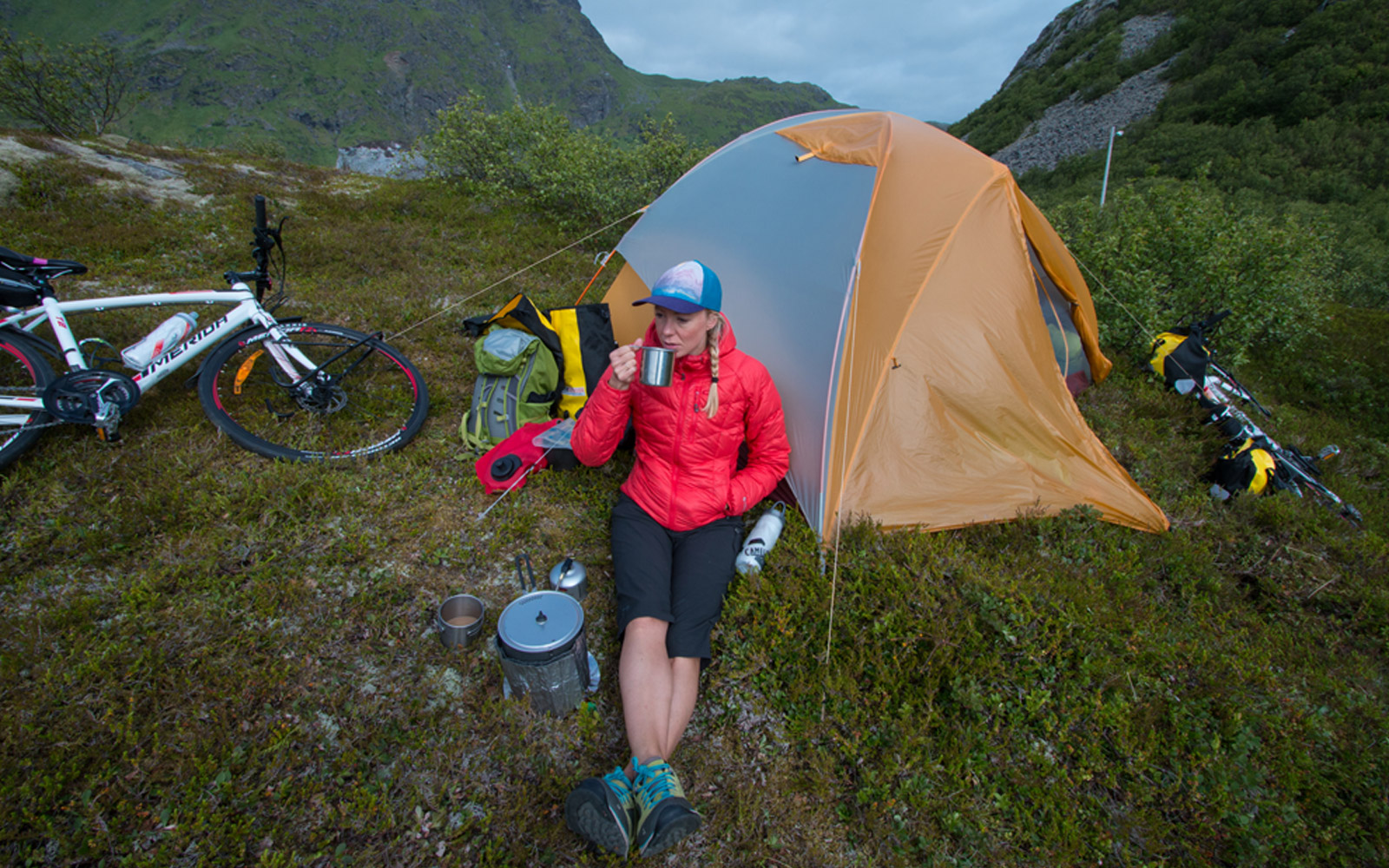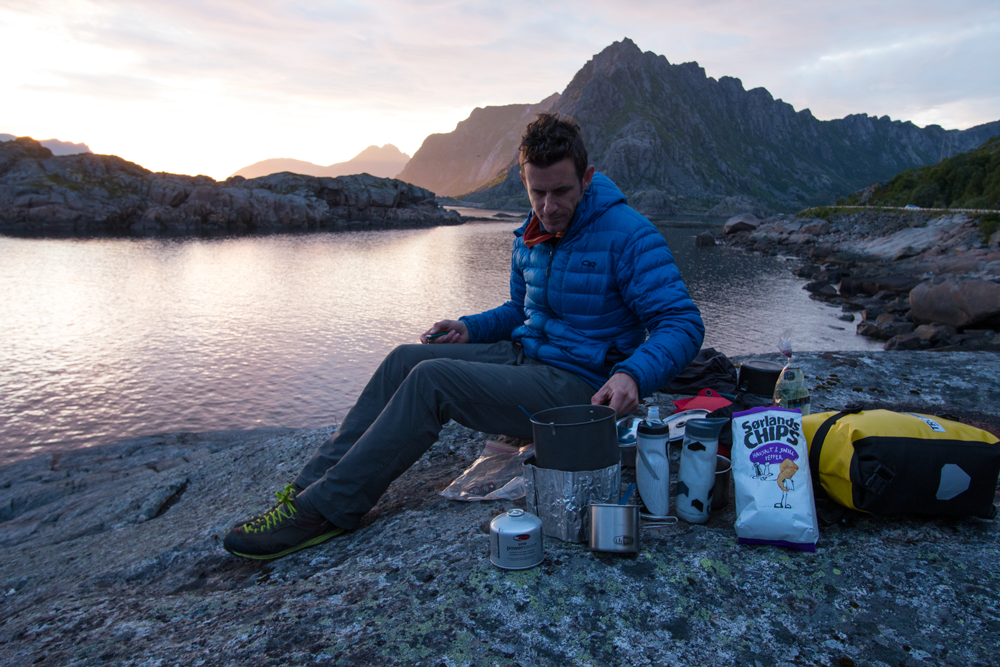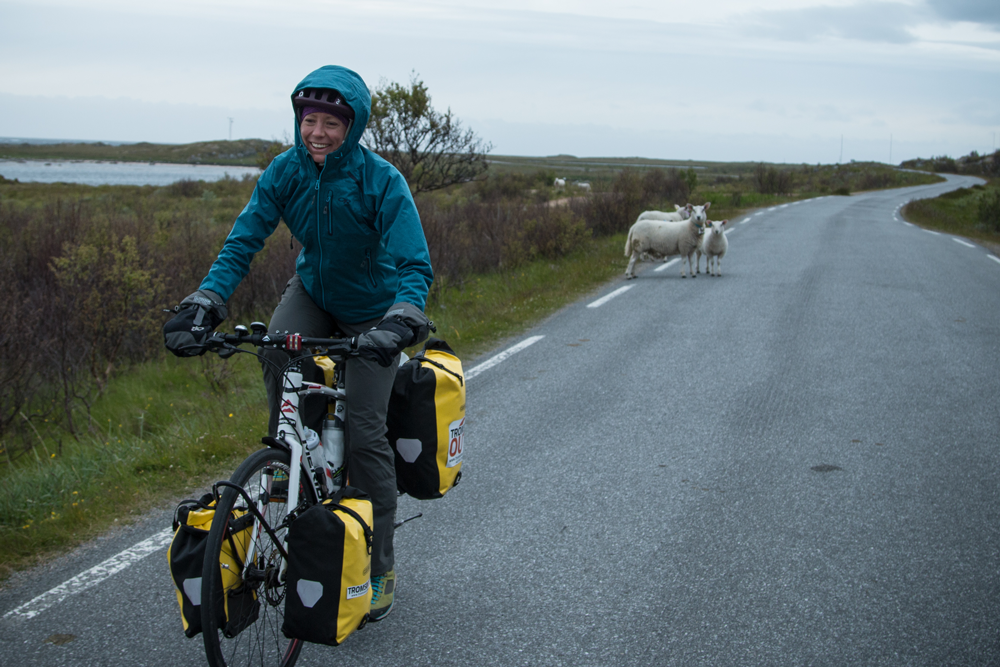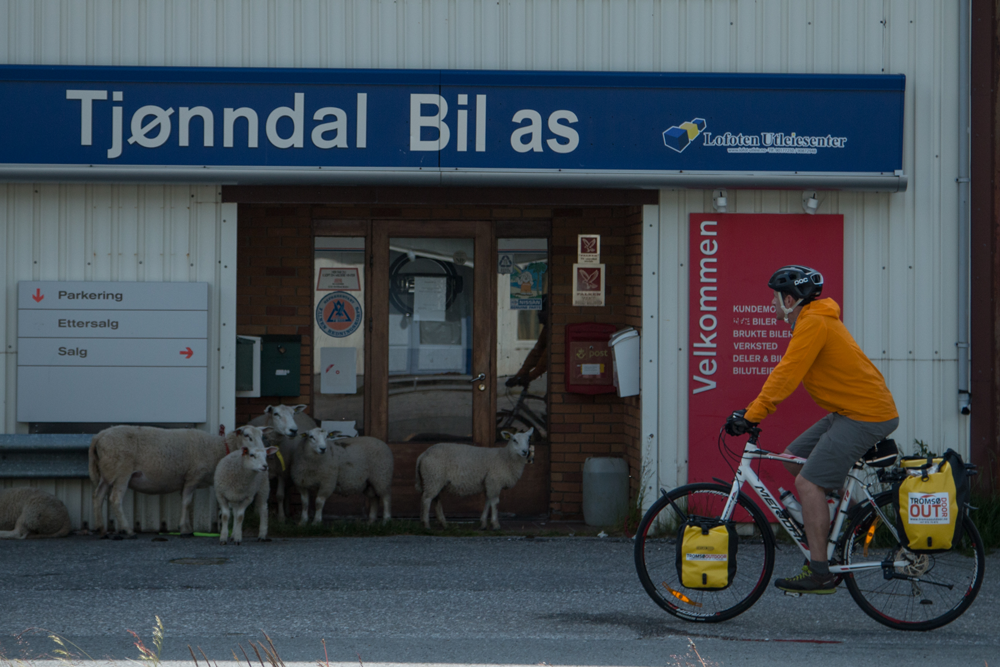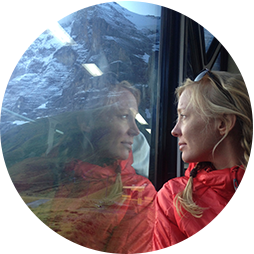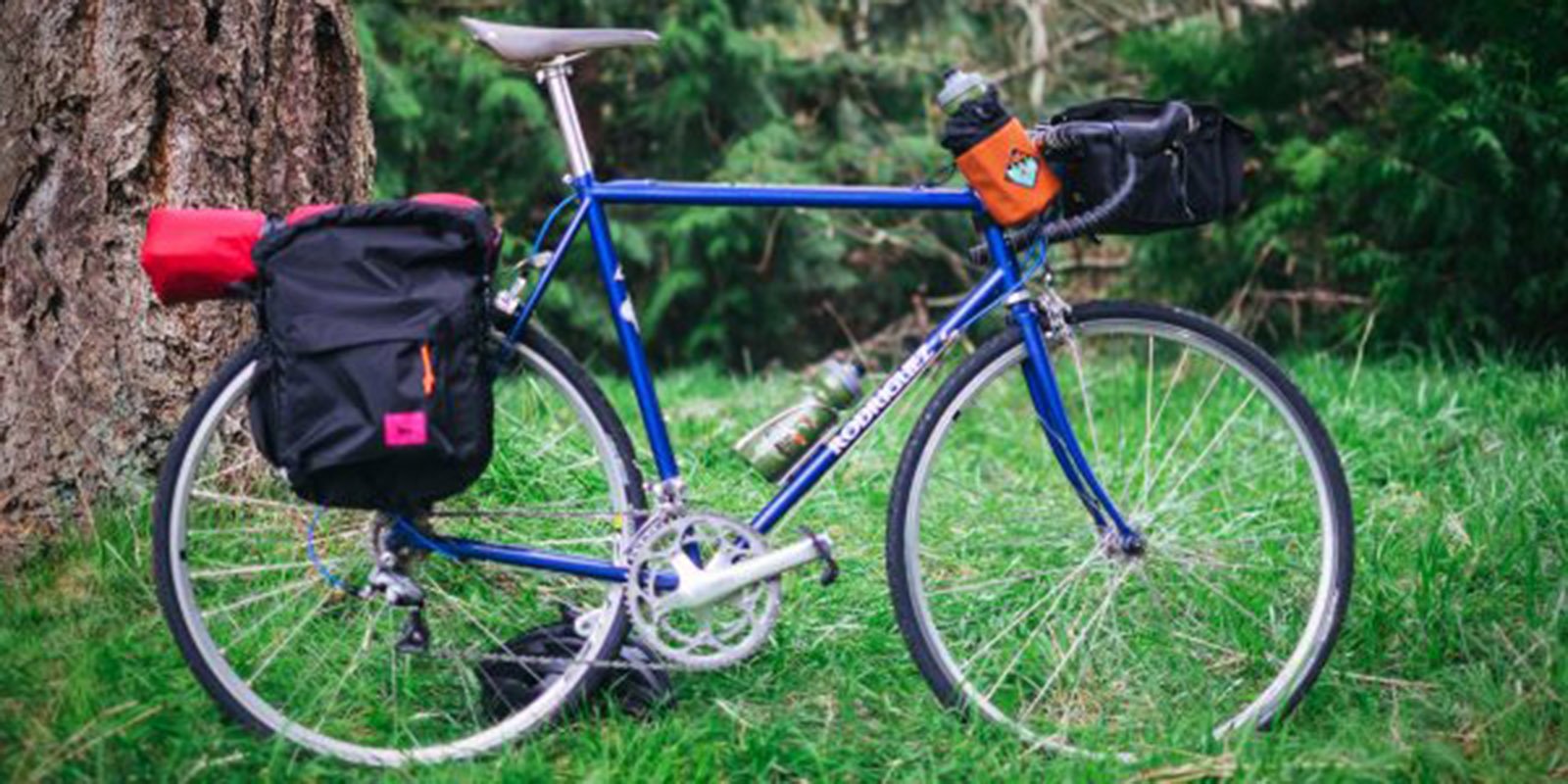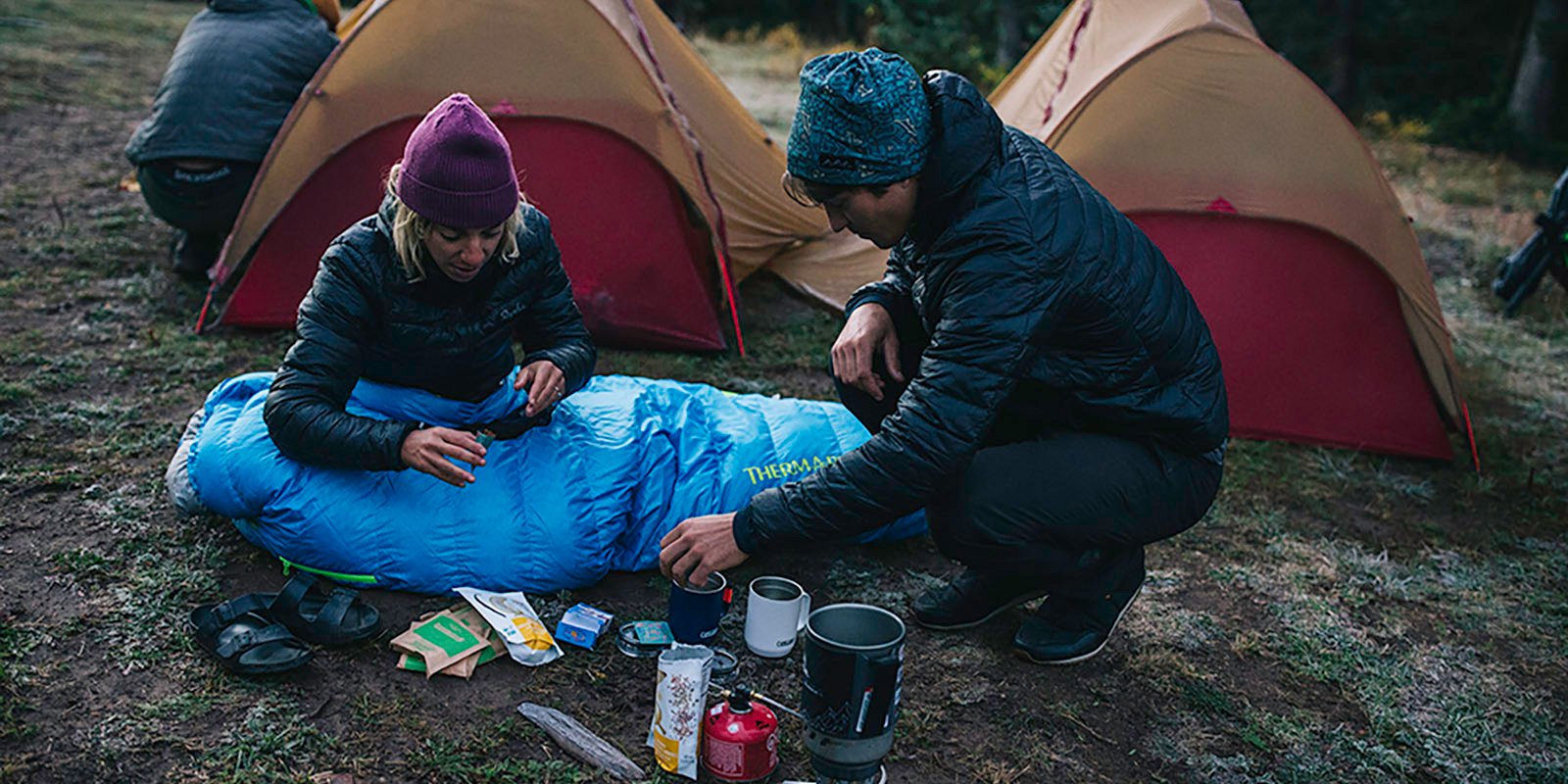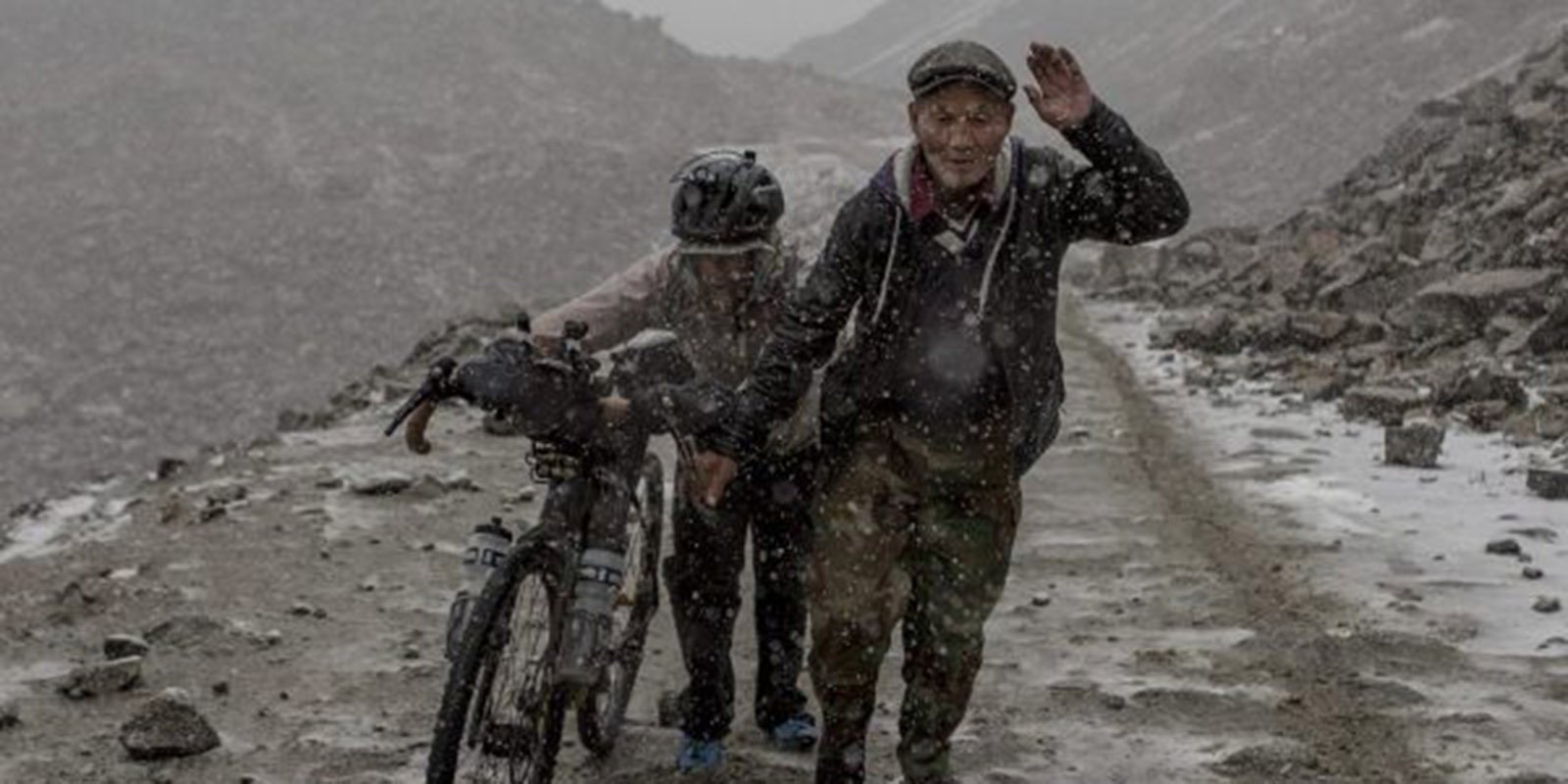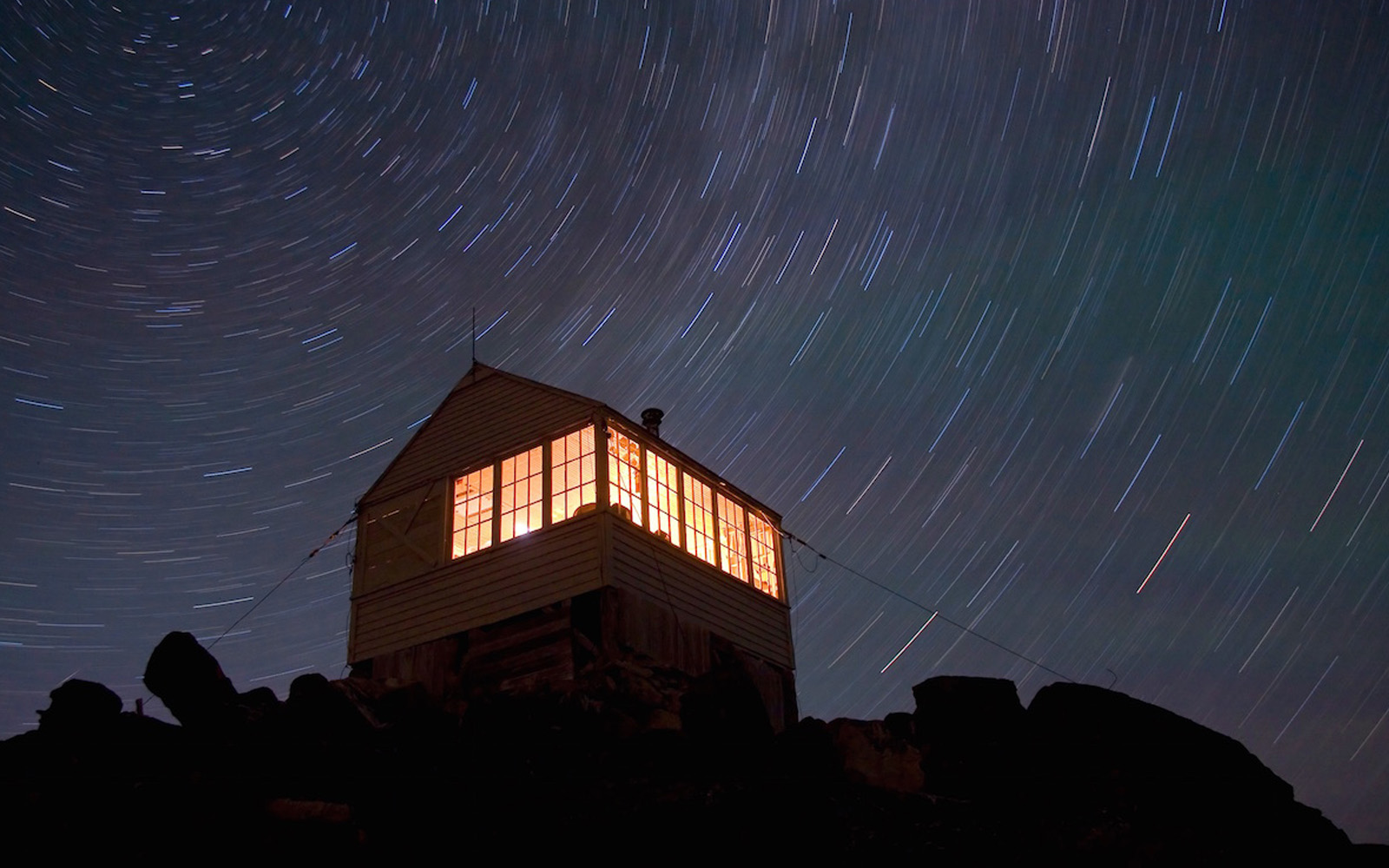The wind whipped down the deserted streets of Andenes, Norway, while golden summer light filtered between the village buildings. The sun, instead of setting, simply slid along the horizon. It was almost 11 p.m., and my boyfriend and I had just rolled our bikes out of a ferry’s cargo-hold at the northernmost outpost of the island of Andøya—nearly 200 miles above the Arctic Circle. It would be miles before we’d find a spot to pitch our tent, but the sun would still be shining when we zipped in for the night. Exhausted as I was, I was deeply grateful for one thing in particular: that I’d packed an eye mask to block out the ceaseless Arctic sun. That trip was full of learning moments. Here are five more things I learned, that I wish I’d known beforehand.
A bit more of the language—like, what those road signs in the middle of nowhere meant.
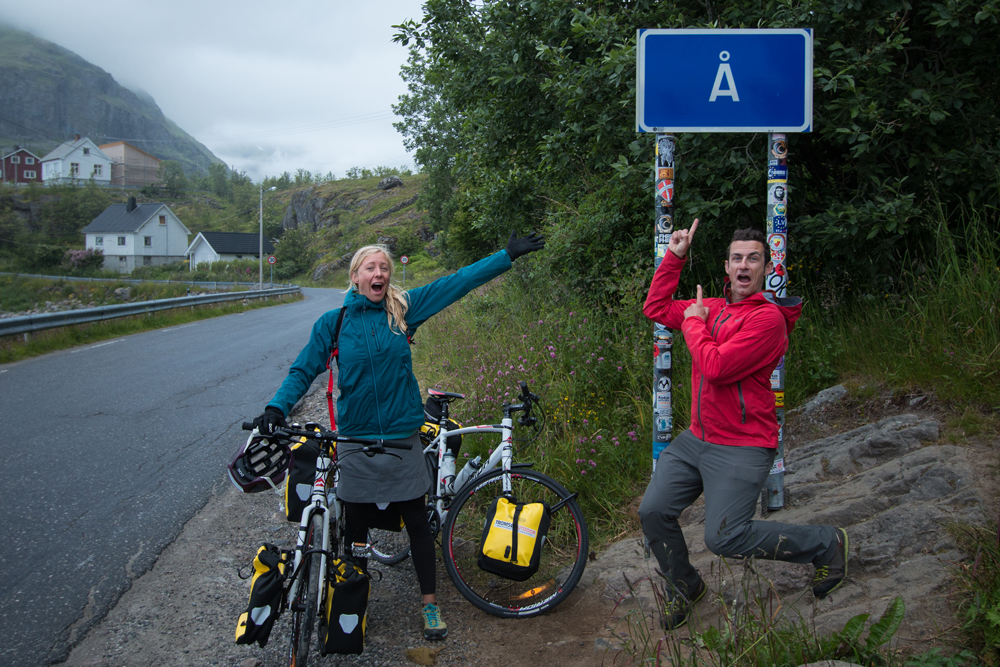
“Did you download a Norwegian language app yet?” Brendan asked, as we boarded the plane. “No,” I said. I’d forgotten. And, I kind of figured that I could rely on his, if it came down to it. Brendan had been to Norway a couple of times before, and assured me that just about everyone spoke English. Still, I felt bad about arriving with some sort of feeling of entitlement about language. And Brendan had a point: Even if everyone we met is more than happy to speak English with us, how would we read any signs or literature we might encounter?
Sure enough, the first day of our tour wasn’t even over before I was wishing I had some sort of translation app. What the heck did Trykk mean? We made an assumption, as we rolled past the sign into the first of the countless mountain tunnels of the trip. Turned out, we were right—it just meant push the button, to start the blinking light that warned motorists that cyclists were in the tunnel. Next time, I’ll be sure to have the ability to look up anything questionable.
That there are always things that don’t show up in those striking tourism photos. Like mosquitoes.
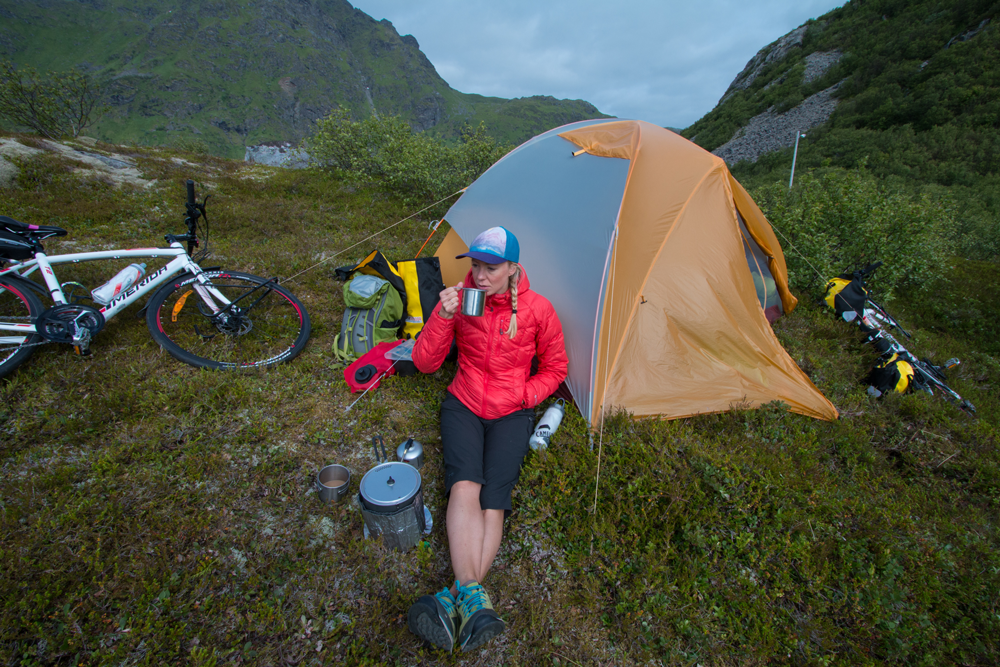
Brendan even Googled “mosquitoes, Norway” before we left. Not finding any useful information, we left the DEET at home … and subsequently sat amongst swarms of the little buggers almost every night of the trip. Thankfully, they didn’t seem to be able to bite through our GORE-TEX jackets. But we learned a lesson: Just because you don’t see pesky mosquitoes—or soggy bogs or nonstop screeching seagulls—in the beautiful Instagram photos of the place you’re going, doesn’t mean they’re not there. In droves.
What kind of food would be available.
Got any sort of dietary restriction? Better do your homework. Brendan and I are longtime vegetarians, and I avoid dairy—and I’m so glad we came prepared to feed ourselves. Of course, part of the enjoyment of a bike tour is sampling the unique foods native to wherever you visit. And we certainly sampled a hefty amount of the local pastries and coffee—almost every town, no matter how tiny, had some sort of café to visit in the afternoon. But we were pleasantly surprised by how undeveloped most of the villages in Lofoten were, even though they receive significant tourist traffic. No truck stops or 7-Elevens here. Or, anything other than the one tiny restaurant serving the fish of the day, actually. If you didn’t hit the right place at the right time, you’d be going hungry. Thankfully, we’d packed our own provisions, and happily supplemented from the occasional grocery store—and just about every café or bakery we passed.
What attractions I’d want to spend more time enjoying.
As a bike tourist, you often find yourself with your nose in a map. You look at the details like topo lines—how big is that climb?—and the parks and natural features along the way where you might want to stop to camp or take photos, or filter water. But often there are things that don’t show up on the topo maps that are also fully worth a visit. It might sound cheesy, but even a quick download of the local Lonely Planet guide on your iPhone can clue you in to visit-worthy sites that don’t show up on the map, like a museum or historic landmark.
To leave a little room for taking home something special.
As soon as the barista handed us our coffee cups and saucers, decorated with the insignia of the boat’s original shipping company, I knew I wanted one. We were ferrying for a day on the Hertigruten cruise line, on a 1960’s boat complete with a café, lounge and dance floor. And as soon as I turned to Brendan, I knew he was thinking the same thing: Do they sell these? They were the perfect souvenir for a couple of coffee fanatics—except we were two coffee fanatics who were traveling by bike and had almost a week more to ride. Impulsively, I bought the set of cups, hoping I could somehow smuggle them home without them breaking. I was so happy I’d packed a small, lightweight day pack that I could carry them in, wrapped in a fleece, on my back. Next time, even if I don’t think I’ll use it, I’ll be sure to pack it again anyway.
